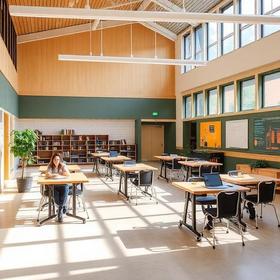Boarding School vs. Private Day School: Which Is Right for Your Child? (2025 Edition)
Choosing between a boarding school and a private day school is one of the most important decisions families make. Both offer high-quality academics, vibrant communities, and pathways to success. This guide provides a comprehensive, 2025-updated comparison to help families identify which model fits their child’s needs, goals, and lifestyle best.
Overview: What Defines Each Option
Boarding School: Students live on campus for most of the academic year, with 24/7 access to classrooms, dorms, faculty mentors, and extracurricular resources.
Private Day School: Students commute daily from home. These schools offer robust academics and extracurriculars during typical school hours, with family life remaining central.
Key Comparison Areas
1. Academic Environment & Learning Support
Boarding Schools often feature immersive academic environments: late-night help, study halls, weekend workshops, and faculty presence around the clock. Campus-based life can accelerate academic and personal growth.(Cardinal Education)
Private Day Schools usually offer rigorous instruction, smaller classes, and strong teacher-student engagement but within regular school hours. After-school tutoring and parent involvement often complement learning.
2. Independence & Life Skills
Boarding Students develop independence by managing routines, laundry, schedules, and decision-making—all within a supportive campus structure.
Day Students maintain strong family connections and benefit from home stability, which some students prefer for emotional balance and support.
3. Social Experience & Community
Boarding School Life fosters deep peer bonds through daily shared experiences—dorm traditions, weekend activities, and community rituals.(Cardinal Education)
Day School Culture can be enriched by familial connections and community engagement. Some schools blend day and boarding populations to mix stability with diversity.(St. Andrew’s model)
4. Cost & Financial Considerations
Tuition structures in 2025:
Boarding schools typically range from $60,000 to over $75,000 per year for tuition and room & board.
Private day schools often range from $40,000 to $60,000 annually—lower overall due to the absence of boarding fees.
Many top institutions—such as Phillips Academy—transform affordability through generous financial aid: in 2024–25, day tuition was approx. $57,190 vs. boarding at $73,780, with full-need aid for qualifying families.(Phillips Academy)
5. Fit for Diverse Learning Needs
Boarding Schools typically offer stronger support structures—including residential counseling, learning difference programs, and place-based interventions.
Private Day Schools may excel for students thriving with strong family support and less structured environments, and still offer tailored academic programs.
Summary Table: Boarding vs. Day
| Comparison Area | Boarding School | Private Day School |
|---|---|---|
| Academics | 24/7 access, immersive learning environment | Focused school hours, strong home support |
| Personal Development | High independence, self-management enforced | Close family interaction, home-based life balance |
| Social & Peer Relations | Intensive peer bonding and shared traditions | Family-centered social life, community rooted |
| Cost & Scholarships | $60–75K/year; financial aid often available | $40–60K/year; tuition lower but fewer boarding benefits |
| Specialized Support | Strong on-campus services and therapeutic supports | Strong academics; best for those with external support |
| Best for... | Students seeking independence, structure, and immersion | Students thriving with family involvement and stability |
Insights from Experts and Research
Dr. Karen Liu, admissions advisor, explains:
“Boarding school environments nurture resilience, peer leadership, and adaptability. Meanwhile, day schools support students who benefit from daily family stability and direct parental involvement.”
Research also shows that when academic instruction is held constant, boarding and day students perform similarly in motivation, engagement, and achievement. A 2021 study in Australia found strong parity between these groups in shared classrooms.(PMC study)
Tips for Families Deciding the Best Path
Assess personality & readiness — Is your child currently ready for residential life, or might they benefit more from strong daily family support?
Visit campuses — Whether boarding or day, school visits reveal the real culture—look at dorms, study spaces, and midday campus life.
Consider logistics — Distance, commute times, family dynamics, and regional access can all influence practical fit.
Evaluate financial options — Boarding can be more costly, but aid packages may equalize difference significantly.
Talk to current families — Real stories from parents and students help clarify expectations vs. reality.
Real-World Example
Boarding Example: A rural family sends their child to boarding school for access to IB curriculum and extracurricular programs unavailable locally. The student thrives independently and graduates with leadership experience.
Day School Example: A commuter student attends a top private school, excels under close family support, and participates in after-school clubs and part-time internships—emerging well-rounded and grounded.
Final Thoughts
There is no single answer to the boarding vs. day school decision. Both offer exceptional advantages. The right choice depends on a student’s temperament, family lifestyle, learning style, and developmental goals in 2025 and beyond.















